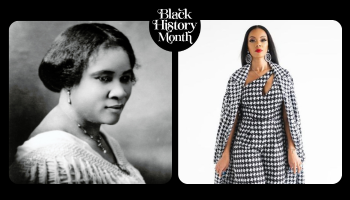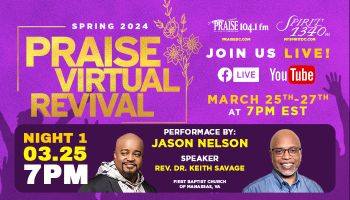Have you ever been the victim of a crime? If so, how did you cope?
Physical, Spiritual, Emotional, and Financial Impact of Crime
Victims may face a wide range of immediate, short-term, and long-term reactions in the aftermath of crime. Every crime victim is unique. Individual trauma is affected by previctimization and postvictimization factors related to individual experiences, degree of personal and social support, resiliency, and exposure to supportive services.
Brief summaries of the physical, spiritual, emotional/psychological, and financial impacts of crime are shown in Exhibits VI-1 and VI-2, which provide an overview of the range of possible reactions that victims may experience.
Exhibit VI-1
Physical and Spiritual Impact of Crime on Victims
|
Physical Impact |
Spiritual Impact |
|
§ Physiological anxiety (including rapid heart rate, hyperventilation, and stomach distress) § Physical injuries (such as gunshot wounds, lacerations, broken bones, sprains, and burns) § Physical injuries that lead to other health conditions (such as heart attack, stroke, fractures from falling, and loss of dexterity) § Increased risk of cardiac distress, irritable bowel syndrome, and chronic pain § Permanent disability § Disfigurement § Immune disorders that increase the potential for infectious diseases § Substantial lifestyle changes, including restriction of activities once enjoyed § Lethargy and body fatigue § Sleep disorders § Loss of appetite, excessive appetite, or eating disorders § Decreased libido and sexual dysfunction § Inability to work § Increased risk of future victimization § For sexual assault victims: possible exposure to sexually transmitted diseases, exposure to HIV, and unwanted pregnancy |
§ In an attempt to understand events that make no sense, people who do and do not engage in religious practice often turn to the spiritual beliefs with which they were raised. These spiritual insights are sometimes helpful; more often than not, however, victims express disappointment in the reactions of their faith communities. § All religions accept suffering as a component of the human experience but understand its role differently. Hindus and Buddhists understand the role of karma in tragic events and seek to accept what has happened rather than seek justice. Jews believe that God expects human beings to act in kindness to one another; when they do not, justice is sought and forgiveness must be earned. The wide gamut of Christianity practiced in the United States includes all perspectives, from acceptance of suffering as “God’s will” and forgiveness of offenders to strong drives for justice in the secular arena. Muslims believe they have a special mission from God/Allah to create a just society. They typically condemn violence and willingly participate in the justice system. |
Exhibit VI-2
Emotional/Psychological and Financial Impact of Crime on Victims
Emotional/Psychological Impact |
Financial Impact |
|
§ Shock § Terror § Feelings of unreality § Feelings of numbness § Confusion § Helplessness § Fear § Anger or rage § Grief or intense sorrow § Enhancement of particular senses (e.g., hearing, smell, sight) § Anxiety (including terror, helplessness, and feeling out of control) § Difficulty trusting self or others § Depression § Panic symptoms § Anxiety disorders (e.g., panic disorder, agoraphobia, obsessive-compulsive disorder) § Inability to concentrate § Guilt and self-blame § Shame § Preoccupation with the crime § Concerns about personal safety § Problems with important relationships § Social withdrawal § Concerns about being believed § Concerns about being blamed § Negative changes in belief system § Increased feelings of vulnerability § Increased risk of alcohol or other drug abuse § Isolation § Persistent avoidance of things associated with the traumatic event § Suicide ideation § Post Traumatic Stress Disorder
|
§ Medical bills (e.g., emergency transportation, hospital stays, inpatient and outpatient physical care, medical supplies) § Medication and prescription drugs § Replacement of eyeglasses, hearing aids, or other sensory aid items damaged, destroyed, or stolen § Rental and related costs for physical mobility restoration equipment (e.g., wheelchairs, ramps, crutches) § Physical therapy § Occupational therapy § Job retraining § Mental health counseling and therapy § Loss of wages due to incapacitation, rehabilitation, or taking time off from work to repair damage from property crimes, participate in criminal or juvenile justice proceedings, or seek medical or mental health treatment § Crime scene cleanup § Loss of or damage to personal property § Costs of replacing locks and changing security devices § Child and elder care § Fees incurred in changing banking or credit card accounts § Higher insurance premiums § Relocation expenses § For families of homicide victims, funeral and burial expenses and loss of income |
The question we should NOT be asking is “Why did this happen to me? What did I do to deserve this ? That is really an unanswerable, pointless question. A better question would be “Now that this has happened to me, what am I going to do about it?”
Are you capable of forgiving and loving the people around you, even if they have hurt you and let you down by not being perfect? Are you able to recognize that the ability to forgive and the ability to love are the weapons God has given us to enable us to live fully, bravely, and meaningfully in this less-than perfect world?
How does God make a difference in our lives if He neither kills nor cures? God inspires people to help other people who have been hurt by life, and by helping them, they protect then from the danger of feeling alone, abandoned, or judged. God maes some people want to become doctors and nurses, to spend days and nights of self-sacrificing concern with an intensity for which no money can compensate, in the effort to sustain life and alleviate pain. God moves people to want to be medical researchers, to focus their intelligence and energy on the causes and possible cues for some of life’s tragedies. God may not prevent the calamity, but He gives us the strength and the perseverance to overcome it.
If you suspect that you or a loved one has post-traumatic stress disorder (PTSD), it’s important to seek help right away. The sooner PTSD is confronted, the easier it is to overcome. If you’re reluctant to seek help, keep in mind that PTSD is not a sign of weakness, and the only way to overcome it is to confront what happened to you and learn to accept it as a part of your past. This process is much easier with the guidance and support of an experienced therapist or doctor.
It’s only natural to want to avoid painful memories and feelings. But if you try to numb yourself and push your memories away, post-traumatic stress disorder (PTSD) will only get worse. You can’t escape your emotions completely – they emerge under stress or whenever you let down your guard – and trying to do so is exhausting. The avoidance will ultimately harm your relationships, your ability to function, and the quality of your life.
Resources: The Office for Victims of Crime Resource Center (OVCRC)
Related Articles:
Decide To Forgive For Your Own Inner Peace
Are Your Embracing Your God Given Talents?
Have you ever been the victim of a crime? If so, how did you cope? Please share your comments below.














